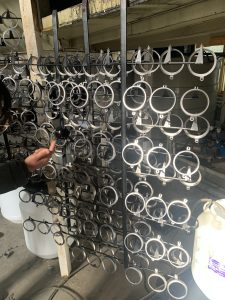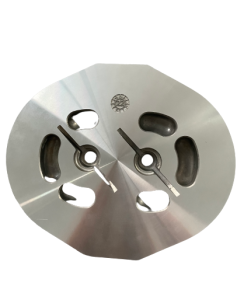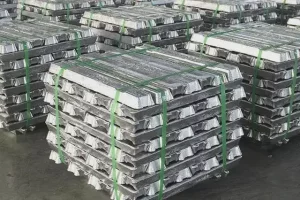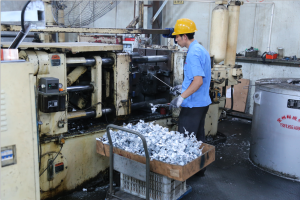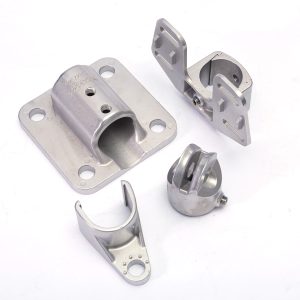For aluminum alloys die casting parts, there’re lots of surface treatment methods, below is some common methods:
1. Powder spraying (ie powder coating)
Powder spraying is to spray powder coating on the surface of the workpiece with powder spraying equipment. Under the action of static electricity, the powder will be uniformly adsorbed on the surface of the workpiece to form a powder coating.
2. Baking paint treatment
The real baking paint process is spraying with aluminum alloy after phosphating, and then baking after spraying. This kind of coating is not only anti-corrosion but also bright and wear-resistant, and it is not easy to fall off.
3. Oil injection treatment
Oil injection is the name of the surface coating processing of industrial products. Oil injection processing is generally specialized in plastic oil injection, silk screen printing, pad printing processing; EVA, rubber and other shoe materials change color and screen printing. It has spraying line, silk screen printing line, pad printing machine and other equipment, and can produce high temperature resistance, friction resistance, UV resistance, alcohol resistance, gasoline resistance and other products according to customer requirements.
4. Oxidation treatment
aluminum alloy surface oxidation, suitable for conductive oxidation, aluminum or aluminum profiles, suitable for anodizing. The oxidation color of aluminum alloy is generally natural color and sky blue. Anodizing is carried out under the condition of high voltage electricity, it is an electrochemical reaction process; conductive oxidation does not require electricity, but only needs to be soaked in potion, it is a pure chemical reaction. Anodizing takes a long time, often tens of minutes, while conductive oxidation only takes a few tens of seconds.
5. Sandblasting treatment
spray a layer of fine sand on the surface of aluminum alloy products to enhance the friction coefficient of the contact surface and enhance the reliability of the connection. The sand has different thicknesses and textures.
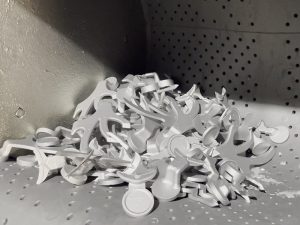
6. Electroplating treatment
Electroplating is the process of depositing metal or alloy on the surface of the workpiece by electrolysis to form a uniform, dense and well-bonded metal layer, which is called electroplating.
